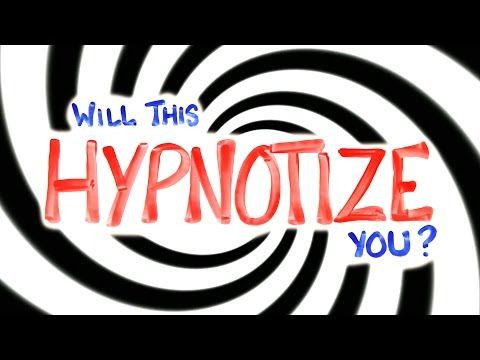Does Hypnosis Work?: Hypnotists Claim State Of Consciousness Relaxes The Brain

When we hear the word hypnosis, we often think of the hypnotist intoning, "You're growing tired. Your eyelids are getting heavy. You're feeling very sleepy.” This mind-controlling hypnosis session is effective on the big screen, but is it scientifically valid? In AsapSCIENCE’S latest video, "Will This Hypnotize You?" hosts Mitchell Moffit and Greg Brown explain that hypnotism is a state of consciousness that involves highly focused attention, which minimized competing thoughts and allows us to respond to suggestions by the hypnotist.
Scientifically speaking, the effects of hypnosis are similar to when the brain focuses on reading a book or watching a television show — the rest of the world just fades away. Research has shown i'is actually capable of shutting down autonomic responses, like reading the words in front of us. For example, AsapSCIENCE shows the word “green,” which it is actually written in blue. If you tried to say the name of the color written on the screen as fast as possible, chances are you'd say blue — this is known as the stroop effect.
This is difficult because we automatically want to read the word but get confused, and end up saying the color of the word instead. However, if the words were in another language like Dutch, then we would not have a problem naming the colors since the words do not have meaning to us, unless we speak Dutch.
In a study, hypnotized participants were given the stroop test after being told that they would see the words as gibberish and meaningless. As a result, the stroop effect was temporarily eliminated, and participants could name the color without error or delay. When the test was run in an fMRI, the participants showed lower activation in the in the anterior cingulate cortex — an area in the brain involved in resolving conflict and competing demands — as well as a reduction in the visual cortex, which is crucial for recognizing words.
The Harvard Group Scale of Hypnotic Susceptibility shows that hypnotizability follows a normal Bell curve distribution. Very few people experience no sensation during hypnotism, many people respond to ideomotor-ideosensory direction suggestions — such as lifting your arm involuntarily — and a small group of people will respond to cognitive suggestions, which impact memory and perception, and create hallucinations and selective amnesia.
Many hypnotists or subjects could seemingly fake hypnosis, but under a brain scan, it becomes clear who is lying and who is actually hypnotized.
Published by Medicaldaily.com



























